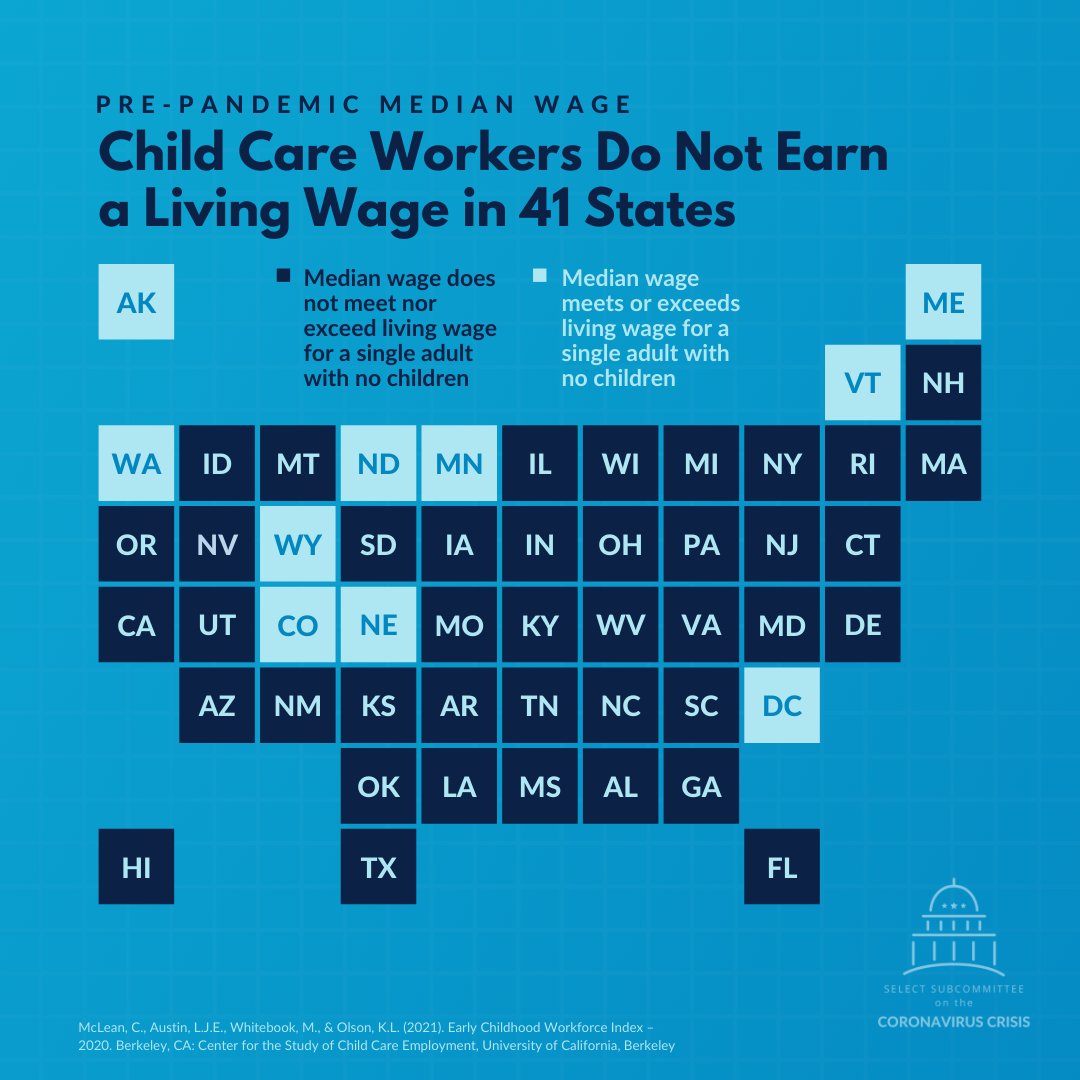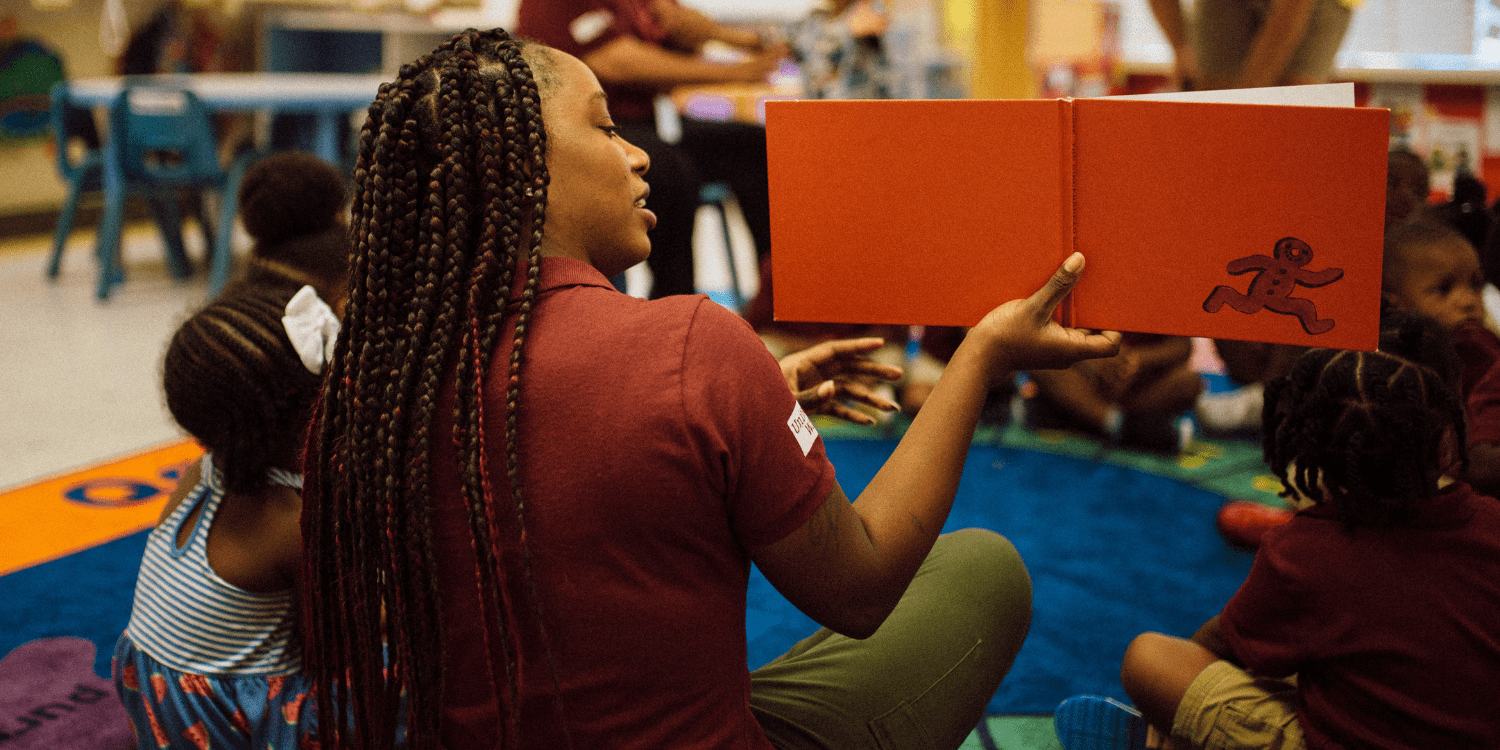Child care workers in 41 states do not earn a living wage – and that was before the COVID-19 pandemic. The situation hasn’t improved in the last two years, in an industry that is overwhelmingly female, with a large percentage identifying as Black, Asian or Latino.
Before the Covid-19 pandemic, the average early childhood worker earned just $11.65 an hour, according to the biennial 2020 Early Childhood Workforce Index from the Center for the Study of Child Care Employment at the University of California, Berkeley. That, and 60 percent of workers say their child-care programs have tried to reduce expenses through layoffs, furloughs and/or pay cuts since the pandemic started, according to a survey released in December by the National Association for the Education of Young Children.

“The pandemic didn’t create these circumstances, but it exacerbated them and it brought child care in this country to the brink of collapse,” says Dr. Lea Austin, executive director of the Center for the Study of Child Care Employment (CSCCE), in her testimony before the Select Committee on the Coronavirus Crisis.
Nearly 16,000 child care programs across 37 U.S. states have permanently closed since the pandemic began, representing a 9 percent decline in the total number of licensed child care providers, according to a report published by Child Care Aware of America.
“Our economy relies on workers who are parents,” said Dr. Austin. “Many parents cannot work without reliable child care, and child care cannot work effectively until its own workforce is secure.”
Although the federal pandemic relief programs provided important stop gap measures, those measures cannot, nor are they designed, to provide long term fixes. Most child care program have to rely on what parents can afford to pay to fund their programs. Consistent, long-term investments are required to ensure that child care services provide quality care, pay workers competitive wages and keep prices affordable for parents and families.
Learn more:
Many child-care workers don’t earn a living wage—and that was the case even before the pandemic, Megan Leonhardt, CNBC, February 24, 2021
Early Childhood Workforce Index, Center for the Study of Childcare Employment
16,000 Shuttered Child Care Programs Push the Sector Closer to Collapse, Emily Tate, EdSurge, February 11, 2022
Federal Aid is Propping Up Childcare. It Isn’t a Long-Term Fix. Sophie Quinton, Stateline, January 12, 2022








Comments